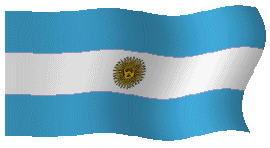
B"H
Jewish  Tours
Tours
 Buenos Aires, Argentina
Buenos Aires, Argentina
Jun 11 2016 at 12:15 AM
He was the most wanted Nazi who had evaded capture. Here's how a tiny band of
Israelis went into another country and brought him to justice.
Adolf Eichmann, in a bullet-proof dock, stands to hear the judgment of his
appeal in the Beit Ha'am in Jerusalem in 1962. It was rejected.
by Andrew Nagorski
One of the great myths of the postwar era was that Israeli agents were
constantly scouring hideouts all over the world, relentlessly tracking down Nazi
war criminals. Nothing could be further from the truth says Rafi Eitan, the man
who led the Mossad commando unit that seized Adolf Eichmann, one of the great
monsters of the Nazi period, responsible for exterminating millions of people.
The new state desperately needed more settlers (Israel's population was about
1.6 million in 1953), but it also needed to identify those among the immigrants
from Eastern Europe and the Soviet Union who were serving different masters. "We
had to check everyone to understand if he was a spy or not," Eitan pointed out.
"This was the first priority – not capturing Nazis."
In 1953, independent Nazi hunter Simon Wiesenthal had received a tip that
Eichmann had been sighted in Argentina but, Eitan asserted, Israel was in no
position to dedicate the necessary manpower and resources to track him down that
early. By the late 1950s, however, Prime Minister David Ben-Gurion and other top
Israeli leaders were feeling more confident about their fledgling country's
prospects.
The notion that they might authorise a major operation to seize a notorious Nazi
war criminal no longer seemed far-fetched. That is, if such an opportunity
presented itself – if, in effect, the opportunity fell into the lap of the
Mossad.
A secret shared
On September 19, 1957, Fritz Bauer, attorney-general of the West German state of
Hesse, arranged a hush-hush meeting at a country inn with Felix Shinar, the head
of Israel's reparations mission in West Germany. According to Isser Harel, the
Mossad director who would later issue the orders that sent Eitan and other
operatives to Argentina to kidnap Eichmann, Bauer came straight to the point.
"Eichmann has been traced," he told Shinar.
When the Israeli queried whether he really meant Adolf Eichmann, Bauer
responded: "Yes, Adolf Eichmann. He is in Argentina."
"I'll be perfectly frank with you, I don't know if we can altogether rely on the
German judiciary here, let alone on the German embassy staff in Buenos Aires,"
Bauer responded, leaving no doubt that he distrusted many of his country's
public servants and was worried that someone would tip off Eichmann. Many former
Nazis were being returned to public positions.
"I see no other way but to talk to you," Bauer continued. "You are known to be
efficient people, and nobody could be more interested than you in the capture of
Eichmann."
When the news reached Harel, he read the Eichmann file that he had instructed
the agency's archivist to pull for him that same evening and well into the
night. "I didn't know then what sort of man Eichmann was," he wrote later, or
"with what morbid zeal he pursued his murderous work". But when Harel got up
from his desk at dawn, he knew "that in everything pertaining to the Jews
[Eichmann] was the paramount authority and his were the hands that pulled the
strings controlling manhunt and massacre".
"That night I resolved that if Eichmann were alive, come hell or high water he'd
be caught."
But more than two years would elapse until the serious preparation for Operation
Eichmann, the kidnapping of the famous fugitive, began. Bauer's source was a
half-Jewish German in Argentina who had written to the German authorities after
he had read in the newspapers that Eichmann had disappeared. The details the
source provided corresponded to what Bauer already knew about Eichmann and his
family, including the ages of the sons who were born before his wife, Vera, and
those boys had also left Germany, supposedly to live with a second husband.
The informant provided an address for the man he presumed to be Eichmann: 4261
Chacabuco Street in Olivos, a suburb of Buenos Aires.
|
Visite nuestro sitio/Visit our home page: |